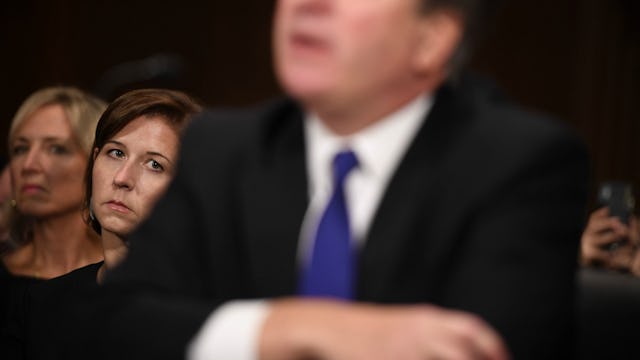Stop Talking About #HimToo And #NotAllMen, And Here's Why

So, I have noticed something that continually happens when the prevalence of sexual assault is highlighted in the media, or when movements (like #metoo) attempt to center the victims of these traumatic, violent crimes.
Even the most (seemingly) progressive people come out swinging with the #NotAllMen argument. They crawl out of the woodwork to announce that they know not all men are “bad” because their husband, son(s), uncle, co-worker, neighbor, cousin(s) are examples of “good men”. They highlight these men and put them up on a pedestal BEFORE they announce their progressive stances on the topic of sexual assault.
All this reached a fever pitch this week during the Brett Kavanaugh hearings when the #HimToo took over social media.
STOP. Just stop.
This type of grandstanding about “I know men who are not rapists!” is NOT needed right now. It actively dismisses the victims that you are purporting to be in support of.
We ALL KNOW that not all men are rapists. We don’t need you to tell us that. It’s the #AllLivesMatter movement of sexual assault and it’s ridiculous.
I’m not going to tell you that my husband and my dad are not rapists before I announce my support of these brave folks who risk their lives, careers, and social standing to come forward and share their stories. We need to stop handing out cookies and trophies to men because they (to our knowledge) don’t commit violent crimes.
What message is that sending anyway?
“Good men” are not the center of this. Men don’t have to be the center of everything, despite what the patriarchy would have us believe.
Believe victims. Support victims. Center victims. Fight for justice for victims. Teach your young children about consent, bodily autonomy and boundaries. Never stop teaching them.
Don’t take the mic away to tell us about the decent men you know. We all know them too, and this is NOT about them.
This is about supporting victims and seeking justice for sexual assault. Period.
This article was originally published on